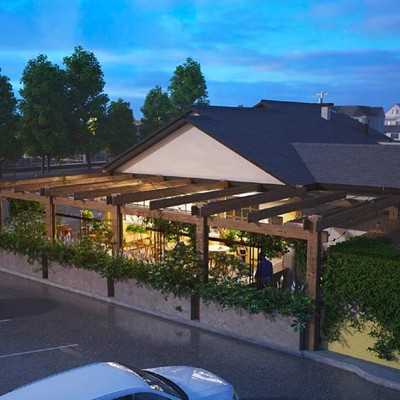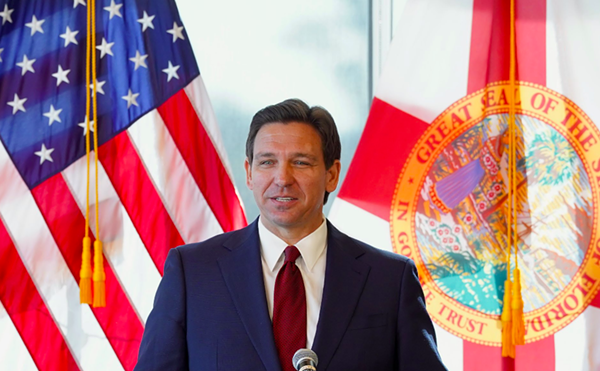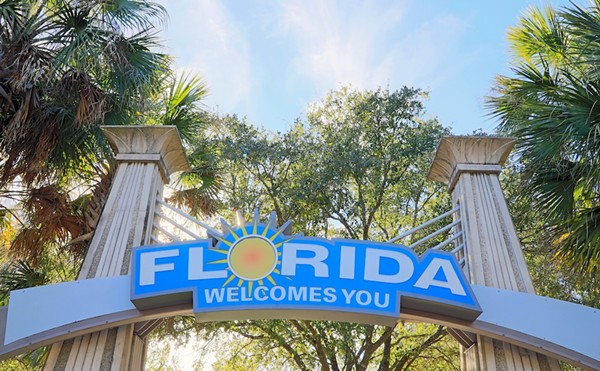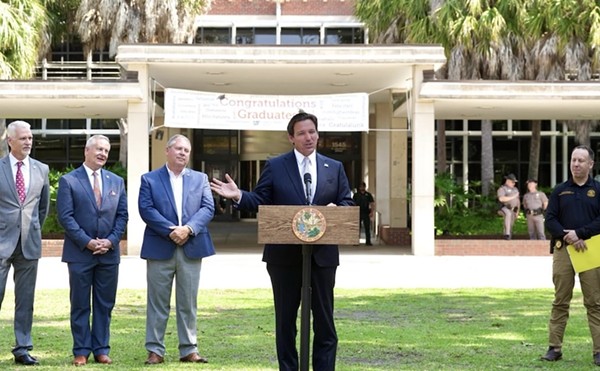There’s a battle raging over what remains of the Florida frontier. Citing the steamrolling tendencies of big development – and the city and county governments’ rubber stamps that typically defer – Palm Beach attorney Lesley Blackner (along with Tallahassee lawyer Ross Burnaman) crafted a constitutional amendment called the Florida Hometown Democracy Act that would require a public vote on any changes to a Florida jurisdiction’s comprehensive land use plan.
The idea isn’t new. Backers tried to get a similar amendment on the ballot in 2006, but in 2005 the Florida Supreme Court rejected the ballot language as too “emotional.” After a rewrite, the court unanimously voted to put the proposal on the 2008 ballot in June 2006. That is, if Hometown Democracy’s supporters can secure 611,009 signatures by Jan. 31, 2008. To date they are close, but not quite there. (Petitions are available at http://www.floridahometowndemocracy.com and must be received by Dec. 31, 2007 to be counted.)
And if business interests get their way, they won’t get there at all. The Florida Chamber of Commerce has launched its own retort in the form of Floridians for Smarter Growth and is offering its own amendment, which would require a public land use vote only in circumstances where 10 percent of the population signed a petition requesting it. Meanwhile, the developer-backed group Save Our Constitution has launched a telephone and online revocation initiative that is pressuring those who have already signed a Hometown Democracy petition to retract their support, something people have 150 days to do after signing the petition.
Blackner, who has already dropped $457,000 of her own money into the Hometown Democracy campaign, isn’t giving up. She spoke with us by telephone about her plan to return power to the people.
Orlando Weekly: Tell us why you decided to get involved in this campaign.
Lesley Blackner: Um, personal madness? I don’t know. Maybe you’d have to ask a psychiatrist. I’ve lived in Florida most of my life and the state’s really gone down the drain in my lifetime. I was sick of it and couldn’t take it anymore, so I decided to try something. … I am truly disgusted with what’s happened to this state. And I’m not one of those people who like to put a smiley-face on everything, you know? You always read these newspaper stories about [how] “we have to act now in the state of Florida.” Well, a lot of it’s been totally destroyed. Nobody ever seems to want to talk about that. And I was waiting for years for somebody to do something, and nobody did anything. I just got really sick of it. … I studied the problem, and here’s our proposed reform, which is not a panacea. It’s not going to fix everything, it’s not going to turn back the clock, but maybe it will begin to give voters hope for something better, or at least not worse.
Has there been any reaction from the state legislature or local governments that you’ve been exposed to?
Yeah, many local governments are opposed to this. And they are using their mouthpieces to say so.
If this amendment passes, what kinds of questions will voters be faced with? What sort of plans will they have to vote on?
Well, [the amendment] doesn’t cover zonings. It doesn’t cover annexations. It doesn’t cover variances. It only covers changes to [comprehensive] growth plans. So, changes to plans that get approved by your local commission would then go to the voters for referenda. So, [our opponents are] saying you’re going to have to vote on 500 things … you know, ballots the size of phone books? That’s a lie. But more importantly, if you have a commission that’s handing out lots of plan changes, you don’t really have planning. You have broken plans; you have corrupted plans. So under Hometown Democracy, the hope is that plans will have more stability, and that plan changes will truly reflect the public interest. Not just allowing the developer to maximize his profit on a particular piece of land.
Land-use policy is a fairly tough cookie to crack, though, right?
Not really! It’s all politics. They make it sound fancy because lawyers have to justify $500 an hour and this whole cottage industry, but land use is all politics. And we have these plans, right? And they’re supposed to be overhauled every seven to 10 years. So we really shouldn’t be changing them that much in the interim. But you know what? The growth industry likes to give itself a veneer of sophistication, control. This stuff isn’t brain surgery, but they use this technical gobbledygook language to give it kind of a veneer of importance. And also so that people can’t understand what’s going on.
One argument I’ve heard is that these are the kind of decisions that we elect our governments to make. Is this a case of lawmakers not doing their job?
No, they’re not doing their job. They shouldn’t be approving a plan change or any land use change unless they make a determination that the public interest is served. But unfortunately, in Florida the public interest is defined as keeping the developers happy. So, no, I don’t think they’ve done a good job. Talk to 20 Floridians who’ve lived in the state 10 years or more and they’ll tell you they’re not happy. Poll after poll shows that the government is doing a crummy job, right? And the state looks like hell.
You referenced your opponents, the Floridians for Smarter Growth, which was established by the Florida Chamber of Commerce? They say that, yeah, we need to control development, but not this way.
It’s like putting a drug addict in charge of a pharmacy. “Oh, yeah, I’m going to fix the pharmacy.” No, they’re admitting the system is broken, they’re admitting that we haven’t done a good job under the status quo, but they’re saying trust us and let us fix it. I don’t think so.
They also bring up alleged discrepancies in the language of the amendment, and say that it could be left too much up to interpretation.
Honey, the Florida Supreme Court ruled that it’s fine, unanimously. They said this is what it is, go read their decision. [The Floridians for Smarter Growth’s competing] amendment hasn’t been up for [Florida Supreme Court] review. You know what I think? I think thou doth protest too much. All they can do is throw stones. Why don’t they look in the mirror at themselves and what they represent, which is the status quo?
Are there any other communities that function under a similar model as Hometown Democracy?
This has been done in parts of England and it’s what has saved the English countryside, how about that? They have established land use maps and they say if you want to change this, you have to go the voters. It’s been done in Napa, Calif., and Ventura, Calif. It’s been done in parts of Ohio, because the U.S. Supreme Court has twice ruled that voters can vote on land use decisions themselves, even down to the site plan level if they so choose. The right to referenda on land use was allowed in Florida until the legislature took it away about 10 or 15 years ago, so all we’re doing is enshrining it in the constitution. … It’s a simple reform, but it’s also a powerful reform, because it goes to the heart of the developers’ power, which is their ability to control the majority on a city or county commission. And that’s why the opponents are so wigged out. It’s just about letting people vote.
Well, don’t you think that the big issue is that most people in power operate under the assumption that the electorate is dumb?
Well, there’s nothing I can do about dumb electorates. But we have the electorate as we find it, and that is called the American people. We just have to take them as we find them. Here’s what Thomas Jefferson said: “I know of no safe depository of the ultimate power of society but the people themselves. And if we think them not enlightened enough to exercise their control with wholesome discretion, the remedy is not to take it from them, but to inform their discretion.” So what we will see under Hometown Democracy perhaps is more debate about the merits of plan changes or land use, because people are going to have to make their case to the community, not just three out of five or four out of seven commissioners, and that will be a good thing.
But for developers that’s a bad thing, because it slows things down.
Yes, but whom does government serve? That is the real question. That’s why I say right now we have government of the developer, for the developer, by the developer. People say, “Oh, it’s a cliché.” No, it’s the truth! Because the public interest has been defined as keeping the development industry happy.
In cities like Orlando, developers are intertwined with local government. Is there any way to unravel what’s already been done?
Under [the developers’] theory, the growth never ends. They’d like to see y’all as dense as Miami. They want 50-story high-rises. That’s success. This is meant for everybody and each community has to decide for itself what it wants to be, or not be. Right now we’re all headed in the same direction, which is down the drain. It’s been very demoralizing to watch over the years just the same old same old, the kind of terrible destructive development that just gets rubber-stamped.
They want more, don’t they? They’re never satisfied. They just overbuilt for five or six years and crashed the economy, but they still want more. It’s really a very insane, unaccountable system. And [Hometown Democracy] isn’t going to stop all the development, either. Even this one reform has driven them batty. … I know we’re on the right track because they’re so freaked out over the whole thing.
[email protected]















